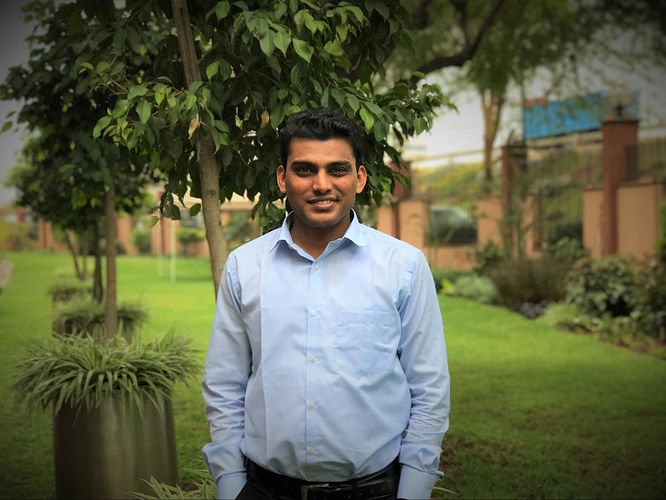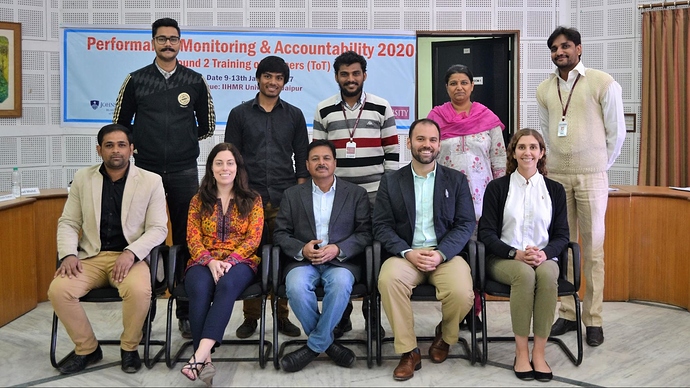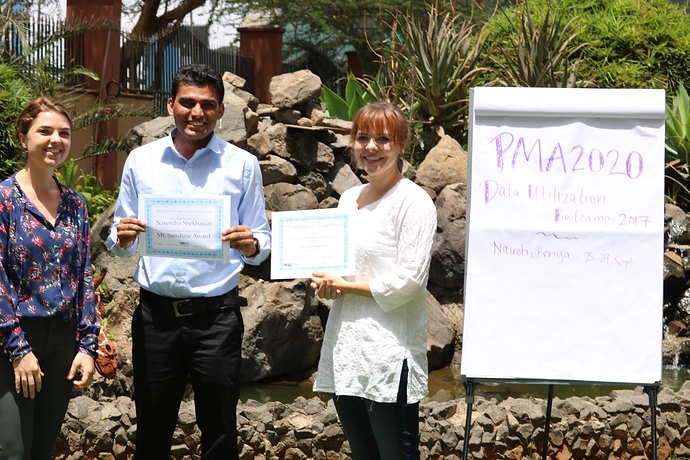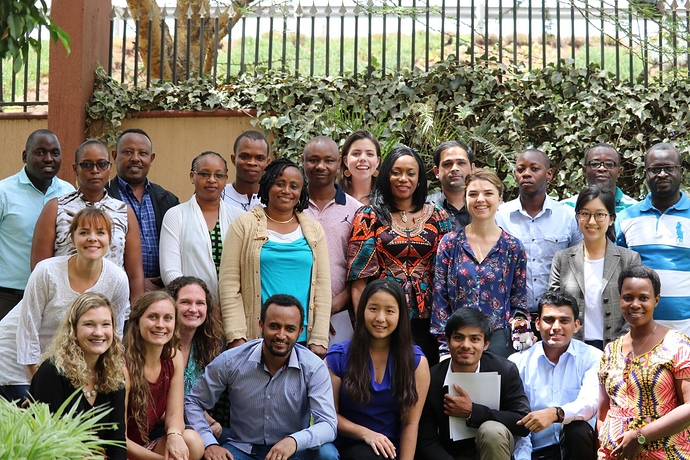For our first ever contributor interview, we had the opportunity to chat with Narendra Singh from PMA2020 Rajasthan. Our conversation has been edited for brevity and clarity.
Name: Narendra Singh (@iamnarendrasingh)
Motto: Give back to society
Tell us a fun fact or story about yourself!
Let me tell you an exciting story about my path in engineering. I started my studies in 2009, and I planned to specialise in systems programming because of my love for Linux then I discovered hacking! I began giving sessions on ethical hacking in my college and then one day I came to know that one of my friends got into some legal issues because of ethical hacking. So, I realised that even ethical hacking could cause problems.
That experience led me to change my mindset and focus on web development and data. After working for two years in web development and technical support (2013-15), I discovered the vast field of data analysis and found that it was the appropriate field for me and I started searching out opportunity in the field of data analysis. According to me, the future is about automation of data and big data as data is the new oil.
How did you first find out about ODK?
In January 2016, I started working at IIHMR University in the Performance Monitoring and Accountability 2020 (PMA2020) project. PMA2020 is a Johns Hopkins University project which is being implemented by IIHMR University in India. It is being funded by the Bill and Melinda Gates Foundation. Apart from India, it is being instigated in 10 other countries in Asia and Africa. In this project, ODK is being used for data collection, and that’s how first I heard of it! Before, I was like “Oh my GOD! what is ODK?!”
At the beginning of the project, my work is to do data analysis and cleaning and for this, I use Aggregate with the Briefcase CLI to download the data. But in April 2017, I started working on ODK forms as well as I was very curious and wanted to know how data is coming from first hand and how I can improve the quality of the data using some ODK tools and validation. In June 2017, while working on the ODK forms, I found that groups and dates in ODK showed some strange behaviour when imported to STATA. As I was surfing the internet and checking out various websites for the possible solution for that, I came across this forum and started sharing and contributing here.
What are you using ODK for?
PMA2020 collects data on family planning and water, sanitation and hygiene. Data is collected at household and facility level via mobile phones through a network of female Resident Enumerators stationed throughout the country. Resident Enumerators transfer data by phone to a central server via the cellular data network. In real-time, data are validated, aggregated and prepared into tables and graphs making the result more quickly available to the stakeholders. We have performed over 410,600+ interviews with ODK and trained over 2,500+ data collectors in 11 countries! Anyone can access and visualise the data PMA2020 collects at http://datalab.pma2020.org
As a data manager, my work is to clean the data, mine it, envision it and make it available to government officials, university's researchers, etc. The majority of PMA2020 projects are in African countries, and I also collaborate with data managers there. This summer, I went to Nairobi for a data visualisation conference and had the opportunity to meet all the data managers. Well, I don’t speak French so I was only able to interact with the ones who can speak English! But all in all, I loved the opportunity.
How did you get so involved in the community and why do you do it?
On the forum, I saw many experts sharing their knowledge and helping people who are a novice in this technology and are asking questions. To me, this seemed to be the right way to give and get help!
In India, people with more work experience always have more opportunity to explore the world and get exposure as compared to those who have less experience even if they have more knowledge. I’ve been working in data analysis for two years, so I’m naive in this field! But still, I believe that I still have a lot to share.
I want to share my data analysis knowledge and skills as I believe we can enhance our knowledge only by sharing it with others. I’ve found that when ODK connects with STATA, Python, R, Power BI or other tools for analysis, revolutionary things can happen. ODK is the frontend for data collection, and it’s great because it’s customizable and surveys can be set up quickly. But we also need analysis and visualisation to make sense of the data and convert it into useful information which could later be used to design strategies and can be used for future generations' betterment.
I’ve been inspired by my colleagues and mentors who have always encouraged me to search for my own answers, so I can give back to the society by developing new solutions. In particular, Linnea Zimmerman, Dr SD Gupta, Dr Anoop Khanna, James Pringle, Shulin Jiang, Danish Ahmad, Anil Kumar, Harshita Bhambhani, PMA2020/Rajasthan Team and uncountable names are there who have shown me the path for doing great work.
I’m also motivated by the weekly users' ranks at https://forum.getodk.org/users. So, every week I compete with myself and try to improve myself so that I can get on top and give more to the community!
What has been the greatest challenge in learning about ODK and its community?
I’ve had very few challenges learning about ODK because my ODK family members are always there ready to help!
But still, Aggregate can be challenging to set up and may require some technical knowledge. More step-by-step guides would be helpful and Aggregate install instructions on AppEngine need to be updated as the platform changes every now and then.
What is your advice to future contributors?
One area of focus I would recommend is improving Briefcase user interface because it is harder to use than the other tools. There have been significant updates to Collect recently like the ability to scan QR codes to configure it, and Briefcase feels like it’s lagging behind.
Even if you’re not a developer, you may have a lot of knowledge about ODK and can give a lot of help to new users.
And I want that every person should take an oath that he will never make any code which will harm anyone.
Do you have any ODK goals for yourself or for the community?
Yes, I have made three goals for 2018!
- Create videos. I didn’t find many detailed ODK tutorials on YouTube, so I want to create some for beginners. https://www.youtube.com/channel/UClQBjY23BjOU7zHonOZwiuA
- Help @TomonoriHoshi with his book (The ODK Book! Written by Tomonori HOSHI)
- Be more active on the forum. I want to give answers to all my community members and help them improve their understanding of Open Data Kit technology.
And an oath which is “I will do all that I can to keep others and my productivity, as high as possible. I will not do anything that could harm that productivity” and, this is something which I want to do till my last breath.
You can find me here
- https://iamnarendrasingh.github.io/itsme/
- https://github.com/iamnarendrasingh
- https://www.linkedin.com/in/narendraa-singh
First line (sitting left to right): Danish Ahmad - PMA2020/Rajasthan Program Manager, Alec Shannon - WASH Program Specialist, Dr. Anoop Khanna - PMA2020/Rajasthan Principal Investigator, Blake Zachary - Associate Director Survey Operations, Suzanne Bell - Research Assistant
Second line (standing left to right): Sandeep Kumar - Regional Coordinator, Kshitiz Sisodia - Regional Coordinator, Narendra Singh - Data Manager, Dr. Gargee Gopesh - Regional Coordinator, Punit Soni (ODK Programmer)
In Photo (left to right): Sally Ann, Narendra Singh, Dr. Linnea Zimmerman - Associate Director, Research
PMA2020 Data Visualization Camp (Sep 24 29, 2017) at Hotel Ole Sereni, Nairobi



